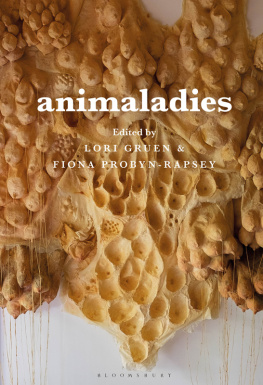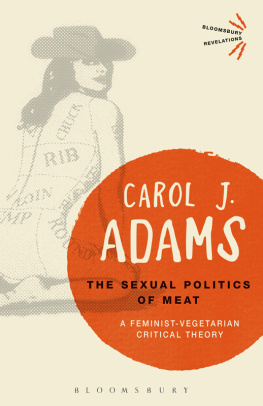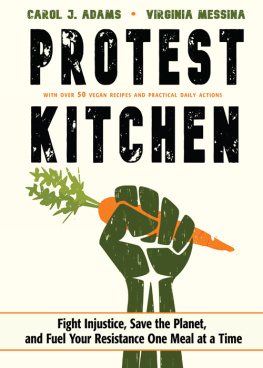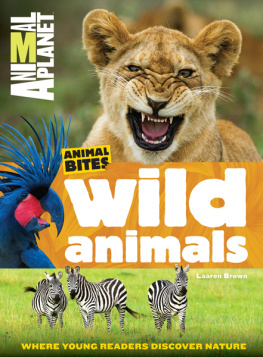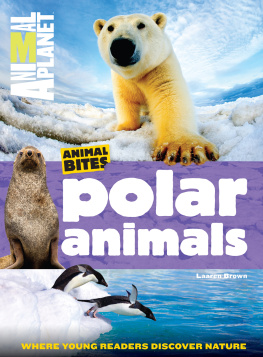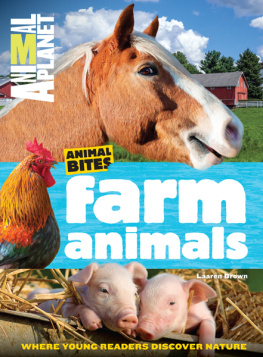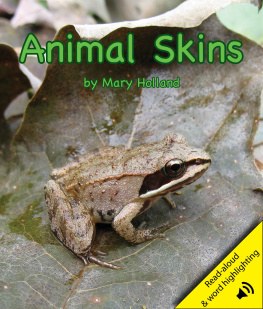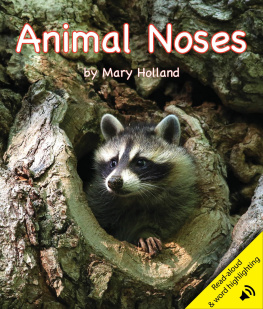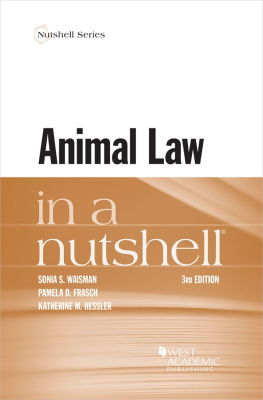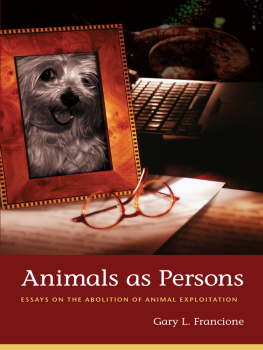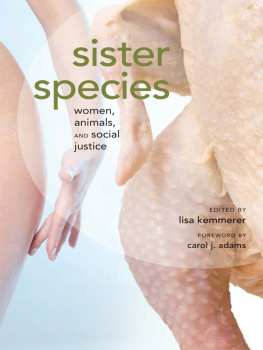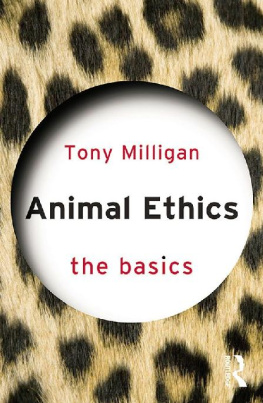ANIMALADIES
ANIMALADIES
Gender, Animals, and Madness
Edited by
Lori Gruen and Fiona Probyn-Rapsey

Nekeisha Alayna Alexis is an independent scholar with wide-ranging interests connected to human and other animal oppression and liberation. She received her Bachelor of Arts degree from New York University, New York, and her Masters of Arts: Theological Studies degree from Anabaptist Mennonite Biblical Seminary (AMBS), Elkhart, Indiana. She is currently the Intercultural Competence and Undoing Racism coordinator at AMBS, where she assists the institution in its strategic goals in this area, as well as works on the Communication team as a graphic designer and website specialist. Nekeisha has presented and published extensively in both theological and religious settings on a number of topics such as animal liberation, veganism, and Christian peacemaking; the interconnected nature of human violence toward other animals and violence among human selves; intersecting oppressions of race, gender, and/or species; and anarchist politics and alternative Christian faith and ethics. Her most recent writings include But Isnt All of Creation Violent? in A Faith Encompassing All of Creation: Addressing Commonly Asked Questions about Christian Care of the Environment (Cascade Books, 2014) and Table Talk: The Violence of Grace and Gratitude (The Mennonite, September 2016). She is motivated by the hope and trust that her intellectual efforts around compassion will inspire others to transform their relationships to other creatures. She dedicates her work toward that end to her loved ones, Mocha and Cairo.
Liz Bowen is a Ph.D. candidate in English and comparative literature at Columbia University, where she works at the intersections of 20th and 21st century American literature, disability studies, and critical animal studies. Her dissertation, Animal Abilities: Disability, Species Difference, and Aesthetic Innovation in the Long 20th Century, traces the intertwined deployments of disability, animality, and cognitive otherness as sites for literary experimentation, from Faulkner to the Harlem Renaissance to contemporary poetics. Liz has been the graduate organizer for Columbias University Seminar on Disability, Culture, and Society for the past three years, and recently taught her first course on literary animal studies. She is also a widely published poet and critic, whose work has appeared or is forthcoming in Boston Review, Lit Hub, The New Inquiry, the Journal of Literary and Cultural Disability Studies, and Humanimalia: A Journal of Human/Animal Interface Studies.
Alice Crary is Professor of Philosophy in the Graduate Faculty and Co-Chair of the Gender and Sexuality Studies program of The New School for Social Research (NSSR) in New York City. She is well known for her numerous scholarly works on the moral dimension of language, as well as edited collections on Wittgenstein, Cora Diamond, and Stanley Cavell. Crary is the author of two monographs on ethics, Beyond Moral Judgment (Harvard, 2007) and Inside Ethics: On the Demands of Moral Thought (Harvard, 2016).
Heather Fraser is Associate Professor in Social Science in the School of Public Health and Social Work, Health Faculty, QUT, Brisbane (http://staff.qut.edu.au/staff/fraserh2/). Heather teaches units relating to critical social work, helping alliances and addictions. With (A/Prof.) Nik Taylor she authored the (2016) book Neoliberalization, Universities and the Public Intellectual: Species, Gender and Class and the Production of Knowledge (Palgrave, London).
Kathryn Gillespie earned her Ph.D. in Geography from the University of Washington (UW) in 2014. From 2016 to 2018 she was a postdoctoral fellow in Animal Studies at Wesleyan University. Her current research sits at the nexus of critical race theory (especially black feminisms), postcolonial studies, and critical animal studies, focusing on gendered humananimal relations and racialized histories of coloniality at the Louisiana State Penitentiary farm and rodeo at Angola. Her dissertation research examined the gendered commodification of the lives and bodies of animals in the dairy industry in the Pacific Northwestern United States. This work became The Cow with Ear Tag #1389, University of Chicago Press, 2018. She has published in scholarly journals, such as Hypatia and Gender, Place, and Culture, and has coedited two books, Critical Animal Geographies: Politics, Intersections and Hierarchies in a Multispecies World (Routledge 2015, with Rosemary-Claire Collard) and Economies of Death: Economic Logics of Killable Life and Grievable Death (Routledge 2015, with Patricia J. Lopez).
Lori Gruen is the William Griffin Professor of Philosophy at Wesleyan University. She is also Professor of Feminist, Gender, and Sexuality Studies and Coordinator of Wesleyan Animal Studies. She is the author and editor of ten books, including Ethics and Animals: An Introduction (Cambridge, 2011), Reflecting on Nature: Readings in Environmental Philosophy and Ethics (Oxford, 2012), Ethics of Captivity (Oxford, 2014), Entangled Empathy (Lantern, 2015), and Critical Terms for Animal Studies (University of Chicago, 2018). Her work in practical ethics focuses on issues that impact those often overlooked in traditional ethical investigations, for example women, people of color, incarcerated people, and nonhuman animals. She is a former editor of Hypatia: A Journal of Feminist Philosophy, is Fellow of the Hastings Center for Bioethics, is Faculty Fellow at Tufts Cummings School of Veterinary Medicines Center for Animals and Public Policy, was the Spring 2018 Laurance S. Rockefeller Visiting Professor for Distinguished Teaching at Princeton University, and was the first chair of the Faculty Advisory Committee of the Center for Prison Education at Wesleyan.
pattrice jones cofounded VINE Sanctuary, an LGBTQ-run farmed animal sanctuary that operates within an understanding of the intersection of oppressions. She is the author of Aftershock: Confronting Trauma in a Violent World: A Guide for Activists and Their Allies (Lantern, 2007) and The Oxen at the Intersection (Lantern, 2014), and many chapters and essays.
Hannah Monroe holds a Master of Arts in Critical Sociology from Brock University, where her thesis research focused on the experiences of autistic people, employing post-structural analysis. She currently supports and mentors autistic children. She plans to complete a Master of Social Work in order to become a therapist, with the goal of empowering neurodiverse young people. Her other publications include a chapter titled Post-Structural Analyses of Conformity and Oppression: A Discussion of Critical Animal Studies and Neurodiversity in Animals, Disability and the End of Capitalism: Voices from the Eco-ability Movement, edited by Anthony J. Nocella, John Lupinacci, and Amber E. George. She has spoken on the intersections between neurodiversity and critical animal studies at the Decolonizing Critical Animal Studies, Cripping Critical Animal Studies conference in June 2016, and at the third Annual Eco-Ability Conference in December 2015.
lynn mowson is a practicing sculptor and animal advocate. Her practice-led Ph.D., entitled beautiful little dead things: empathy, witnessing, trauma and animals suffering, was completed at VCA, The University of Melbourne, in 2015. Her sculptural research is featured in the book The Art of the Animal (Lantern Press, 2015) and the exhibition SPOM: The Sexual Politics of Meat at The Animal Museum, Los Angeles, held in February 2017. lynn is Research Assistant for the Human Rights and Animal Ethics Research Network (HRAE), University of Melbourne, is on the committee for HRAE, is Vice-Chair of the Australasian Animal Studies Association, and is Associate for the New Zealand Centre for Human Animal Studies. Website: https://lynnmowson.com/
Next page
